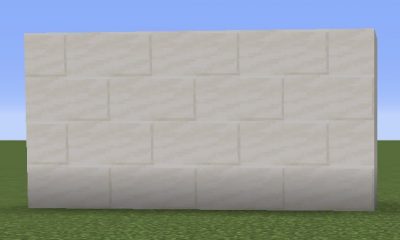Blog
Transform Your Writing: Supercharge Sentences with Analysis

“Writing is the painting of the voice,” said Voltaire, and truer words were never spoken. Crafting sentences is an art form, a symphony of words that dance on the page. But how do you elevate your writing from a simple waltz to a dazzling tango? It is not at all an easy task.
Then what should one do? Performing arts or performing words – these are not everyone’s cup of tea. But what if someone wants to present a masterpiece with their writings? This is not my question – this is a query of quite a lot of people. In the era of AI, of course, resources like an AI Sentence Structures Analyzer or similar tools are available for free on the internet.
There are other resources available. According to the custom writing experts of Essays writer and similar websites, the secret lies in analysis – the unsung hero of powerful prose. Today, we will learn how the experts supercharge your sentences with analysis. So, if you want to upskill your writing game, grab your literary magnifying glass, and let’s get ready to unleash the writer in you.
- The Power of Deconstruction:
Have you ever tried reverse-engineering a delicious dish just to discover its magical secret ingredient? Well, writing is no different. Break down exemplary sentences like a detective solving a case. Analyze the structure, the choice of words, and the rhythm. What makes that sentence sing? This deconstruction is your arsenal for constructing your symphony of words.
- The Anatomy of a Sentence:
Sentences are not mere strings of words but living organisms with distinct parts. Subject, verb, object – the holy trinity of sentence structure. Analyze how each part contributes to the sentence’s vitality. Picture it as a team: the subject leads, the verb executes, and the object catches the spotlight. When each player knows their role, the sentence becomes a winning team.
- The Art of Word Selection:
Words are the building blocks of sentences; like a master builder, you must choose them wisely. Analyze the connotations and nuances of words. Is it a mere ‘walk’ or a ‘stroll’? The difference lies in the details. Imagine your words as colors on a palette – blend them carefully to paint a vivid picture.
- Rhythm and Pacing:
Have you ever danced to a song with an erratic beat? Writing is no different. Analyze the rhythm of your sentences. Short sentences create a staccato effect- they are quick and punchy. Longer sentences, on the other hand, allow the reader to waltz through the prose. Like a DJ mixing beats, vary your sentence lengths to create a symphony of words that keeps your reader grooving.
- The Magic of Transitions:
Transition words are the fairy godmothers of writing, magically connecting ideas and guiding the reader through your narrative. Analyze how these transition words weave the fabric of your sentences seamlessly. Think of them as the GPS of your writing, ensuring your reader never gets lost in the labyrinth of your thoughts.
- The Sherlock Holmes Approach:
Deductive reasoning isn’t just for detectives; it’s also a secret weapon for writers. Analyze your sentences with a critical eye. Trim the unnecessary fat. As Sir Arthur Conan Doyle would say, “When you have eliminated the impossible, whatever remains, no matter how improbable, must be the truth.” Apply this principle to your sentences – cut the fluff, and what remains is the essence of your message.
- Variety is the Spice of Sentences:
Imagine a dish with only one flavor – boring, right? Your sentences need variety. Analyze the types of sentences you use. Combining simple, compound, and complex sentences creates a flavorful reading experience. It’s like a literary buffet – offer your reader a diverse feast.
- Analogy: Your Secret Weapon:
Analogies are the salt and pepper of writing. They add flavor and make complex ideas palatable. Analyze your subject and find relatable analogies. It’s like explaining rocket science to a child – breaking it into familiar terms. Your reader will appreciate the effort, and your writing will improve.
- The Rule of Three:
Three is a magic number – a principle deeply ingrained in storytelling. Analyze how you can leverage the rule of three in your sentences. Three elements create a natural flow and a pleasing rhythm. It’s like a well-timed punchline in a joke – the third beat seals the deal.
Writing is not just about conveying information; it’s about creating an experience for your reader. So, put on your detective hat, pick up your literary magnifying glass, and let the analysis begin. Your sentences will thank you for it, and so will your readers. Happy writing!




















